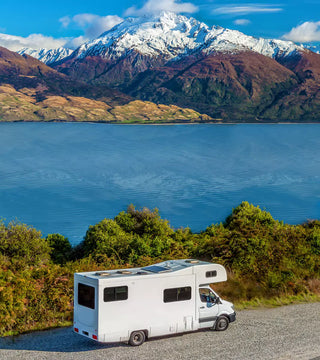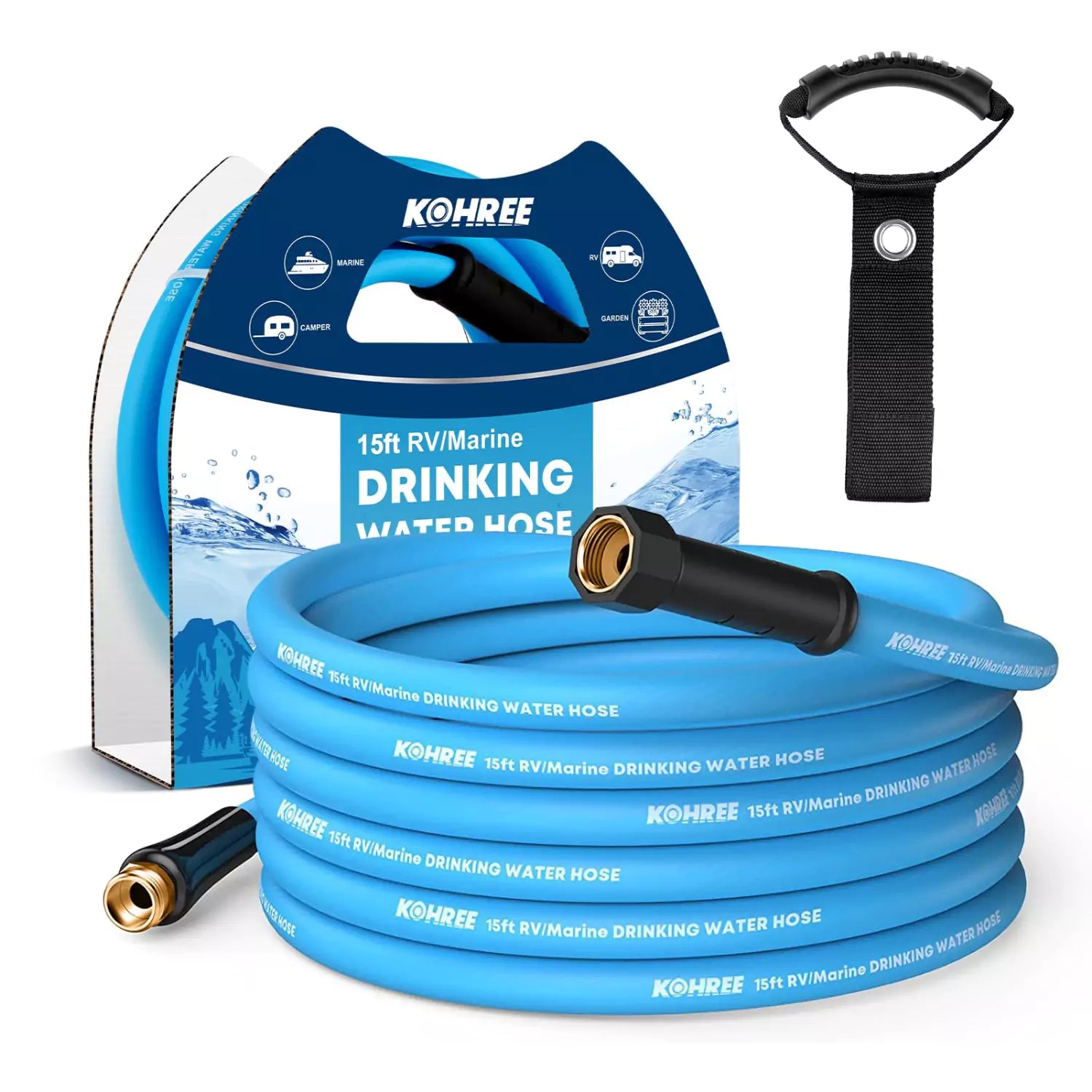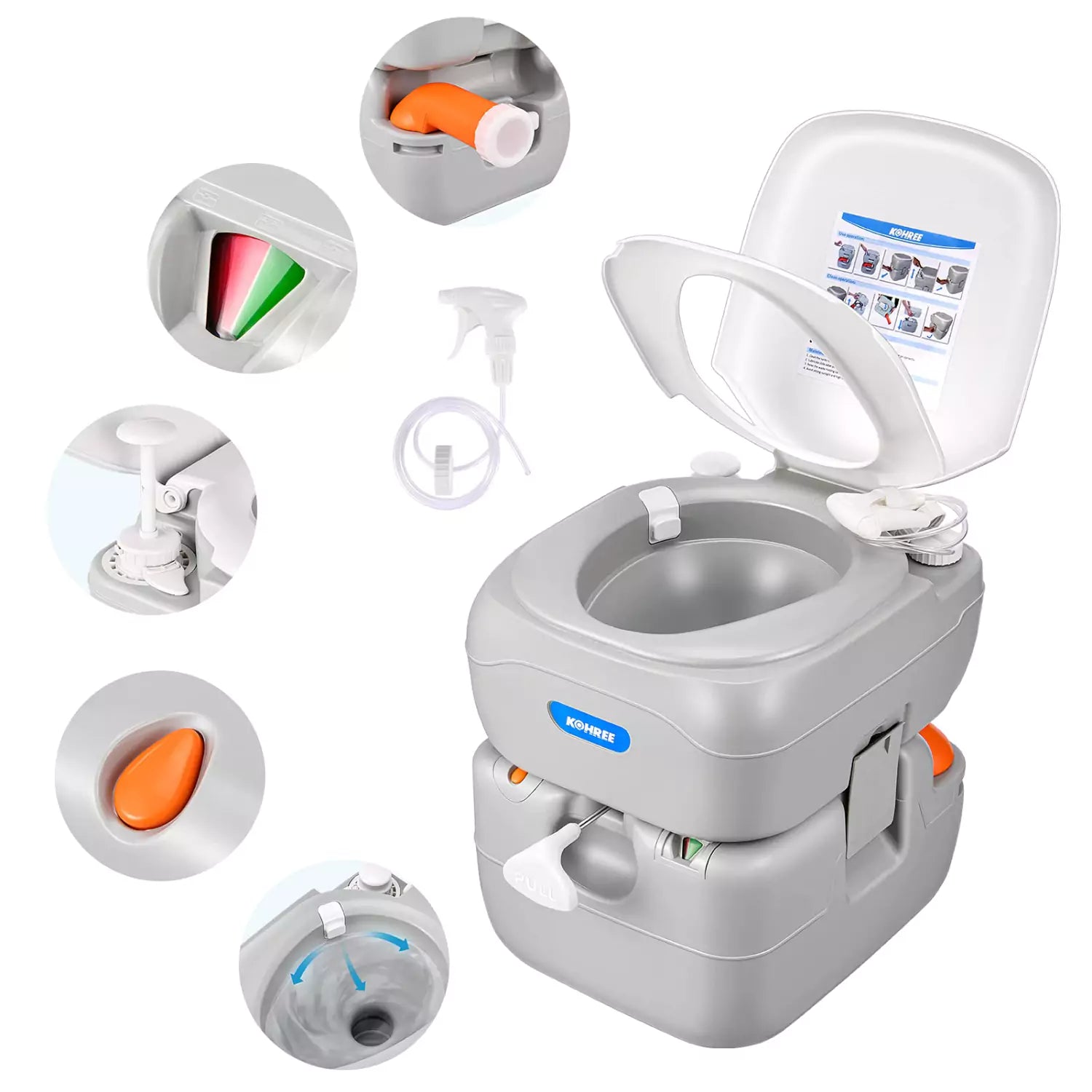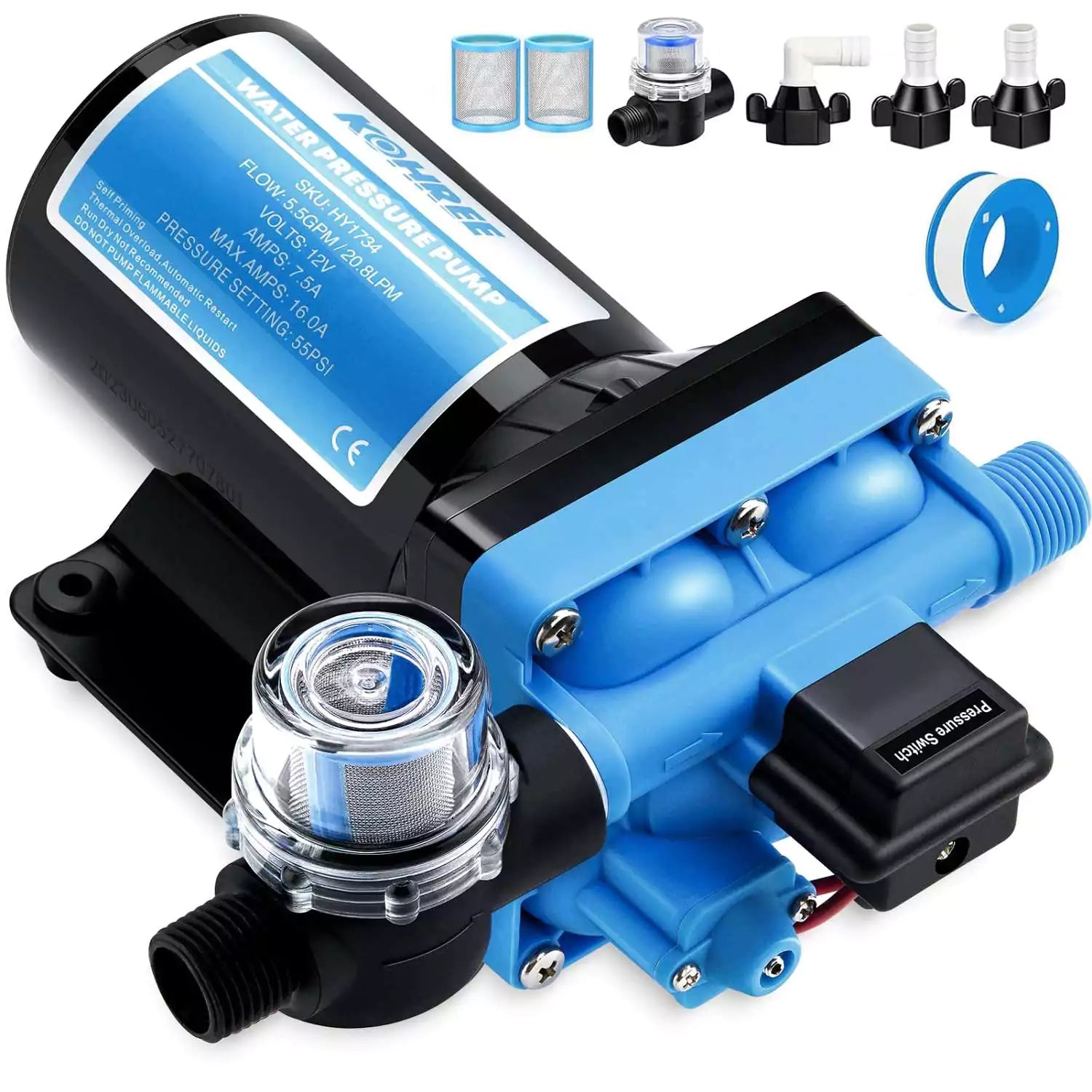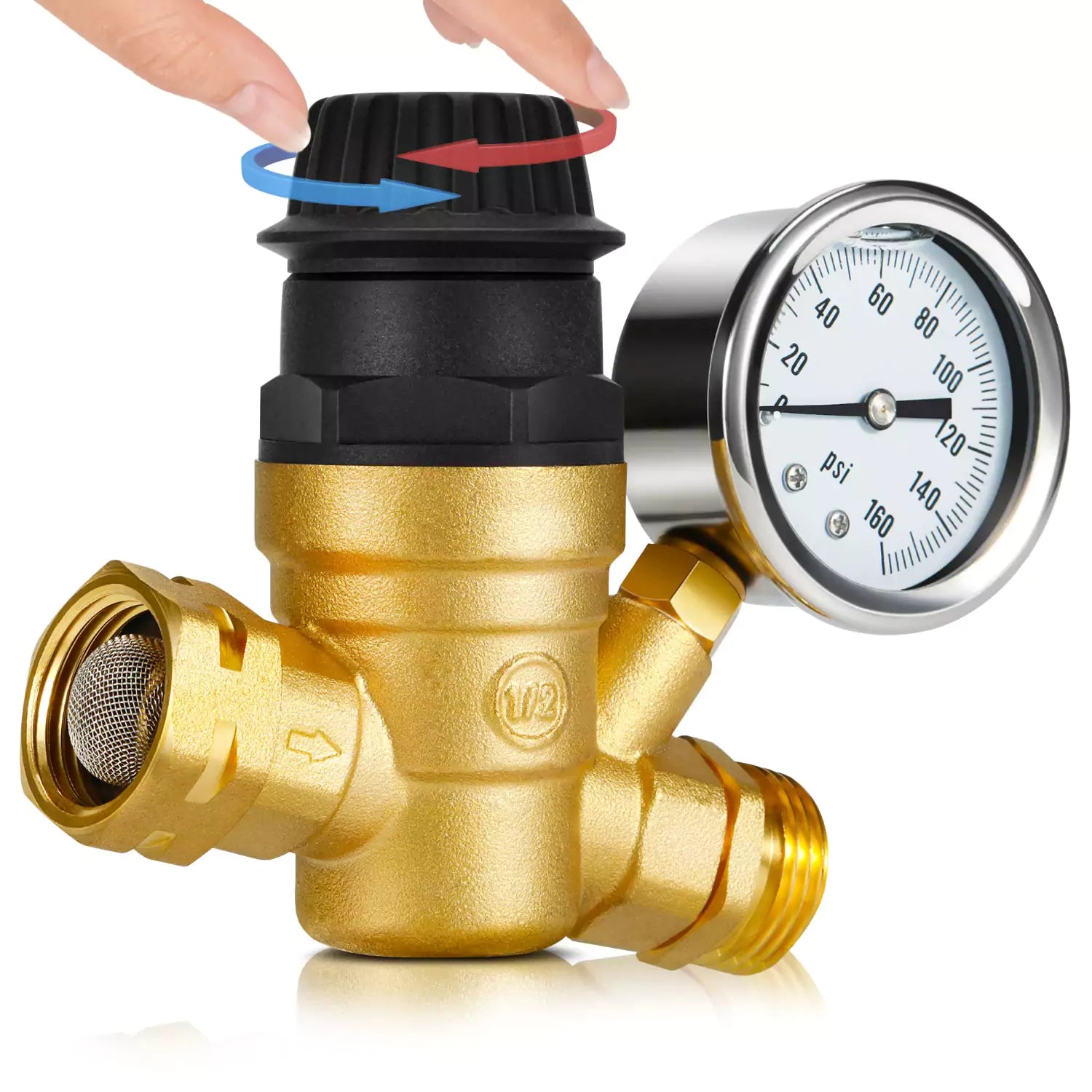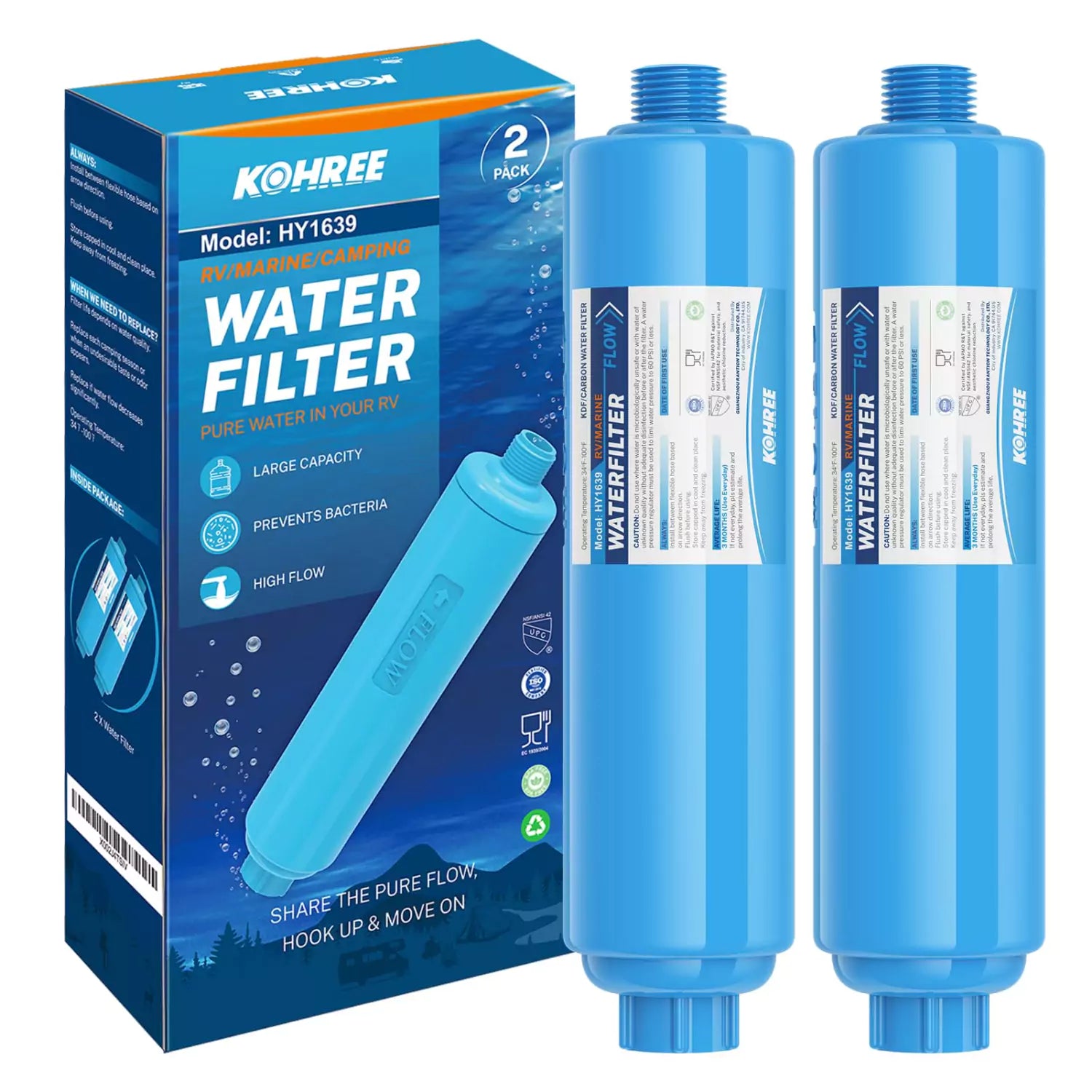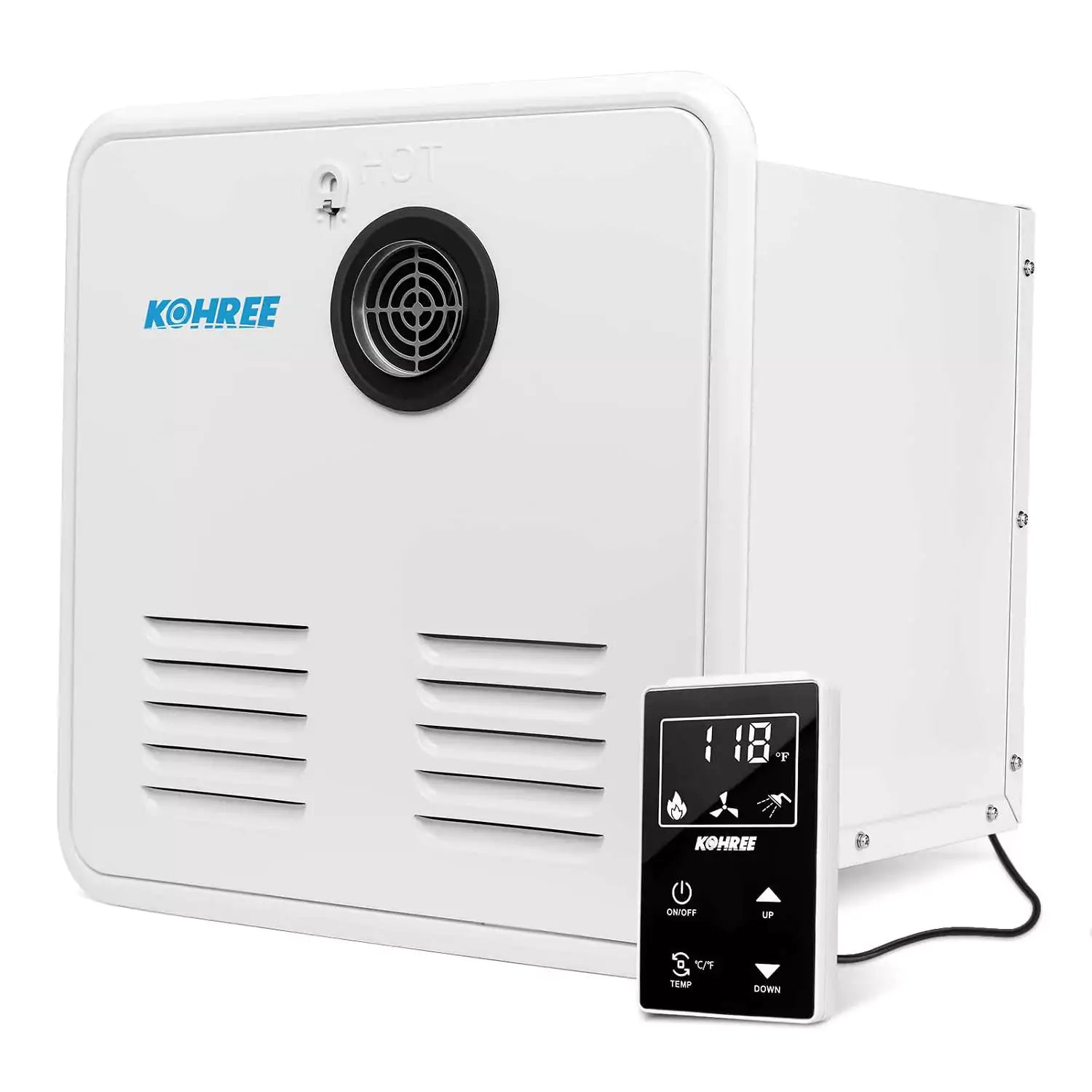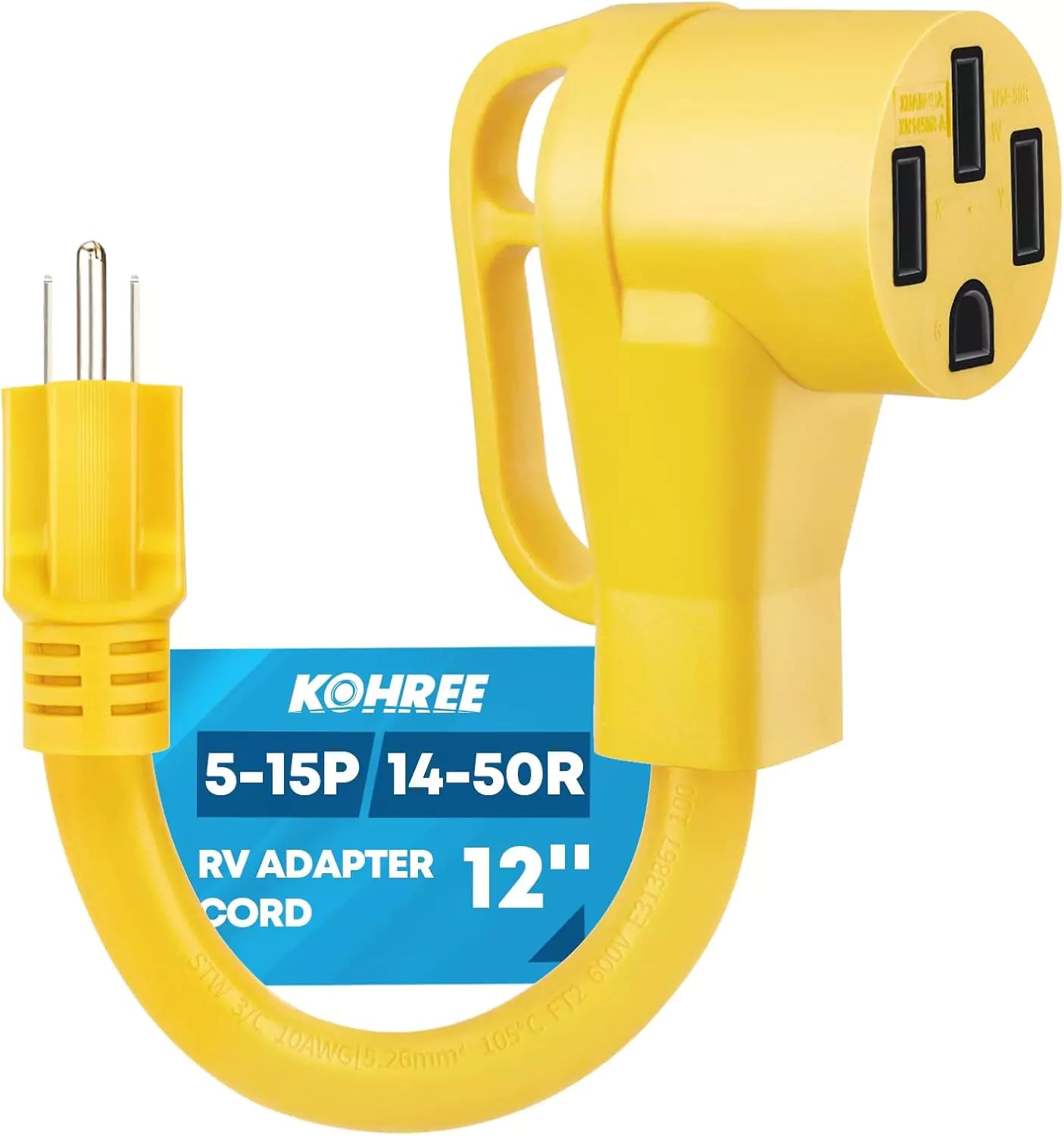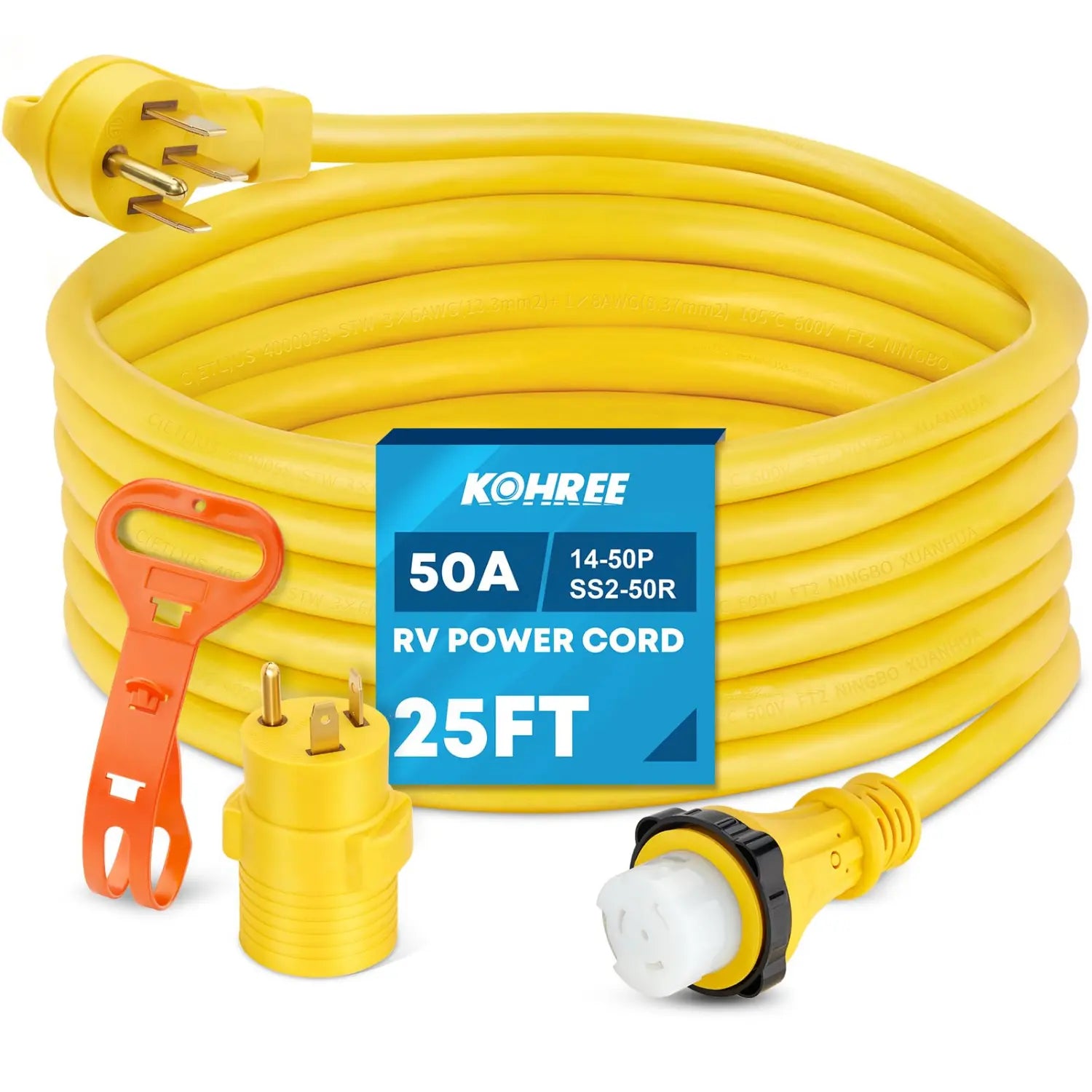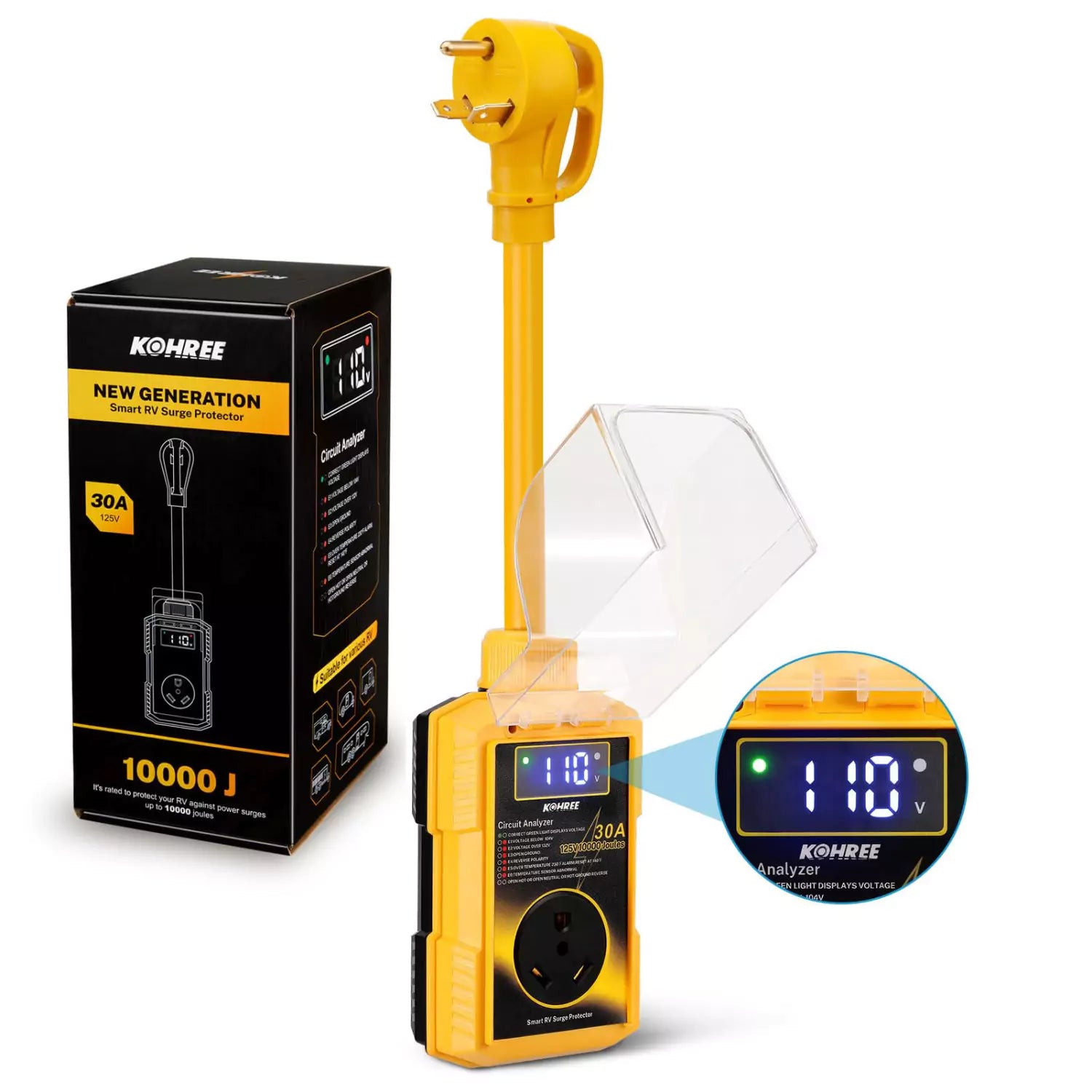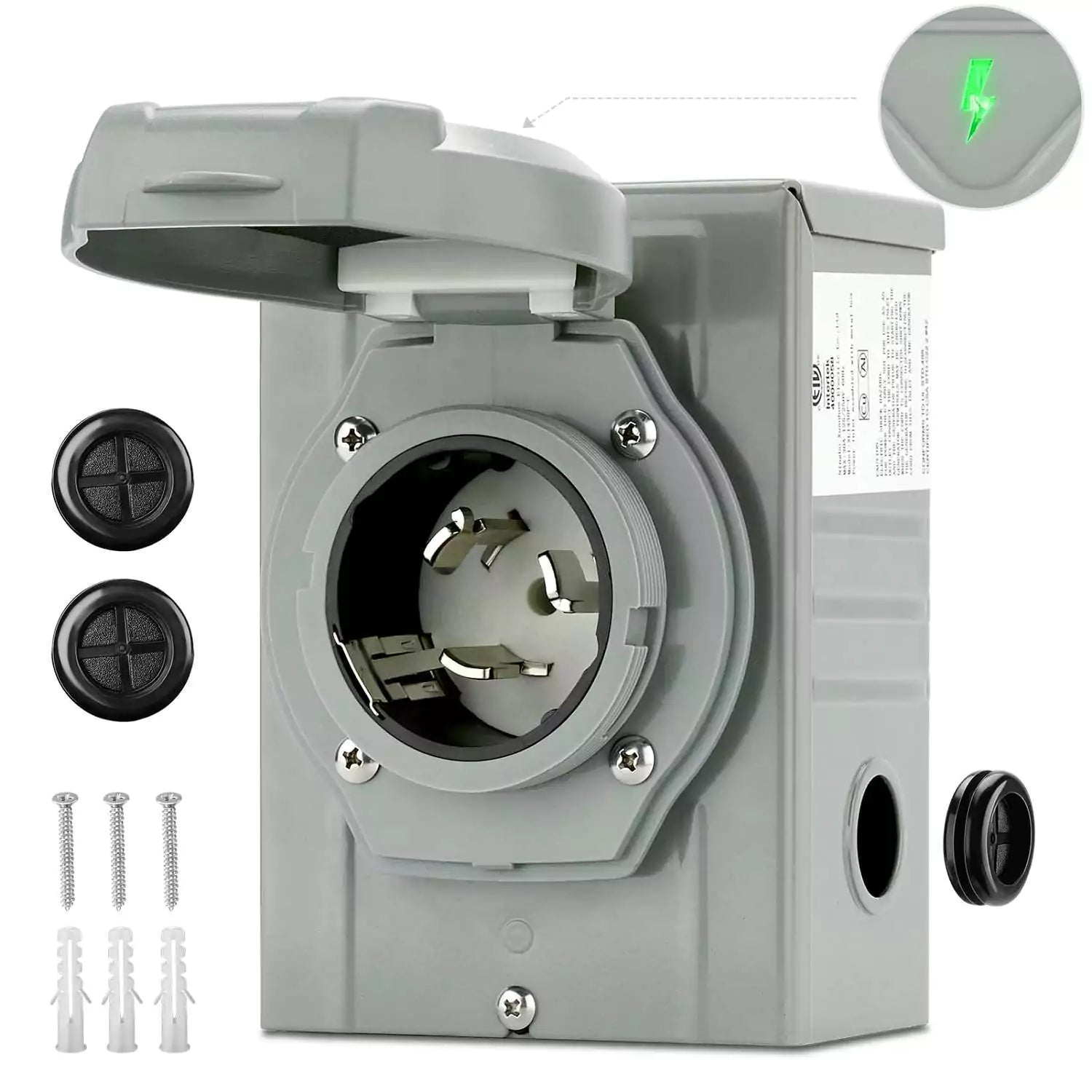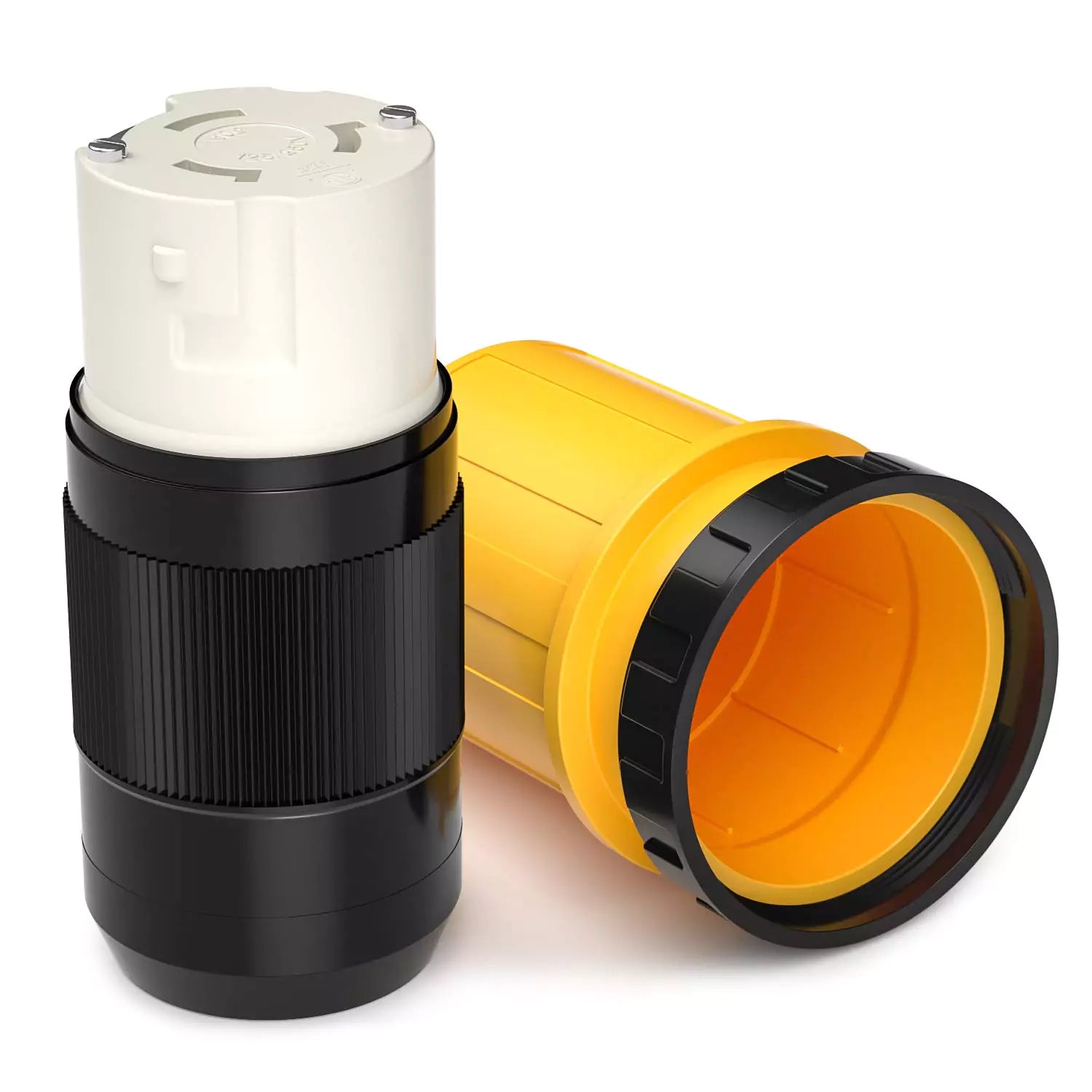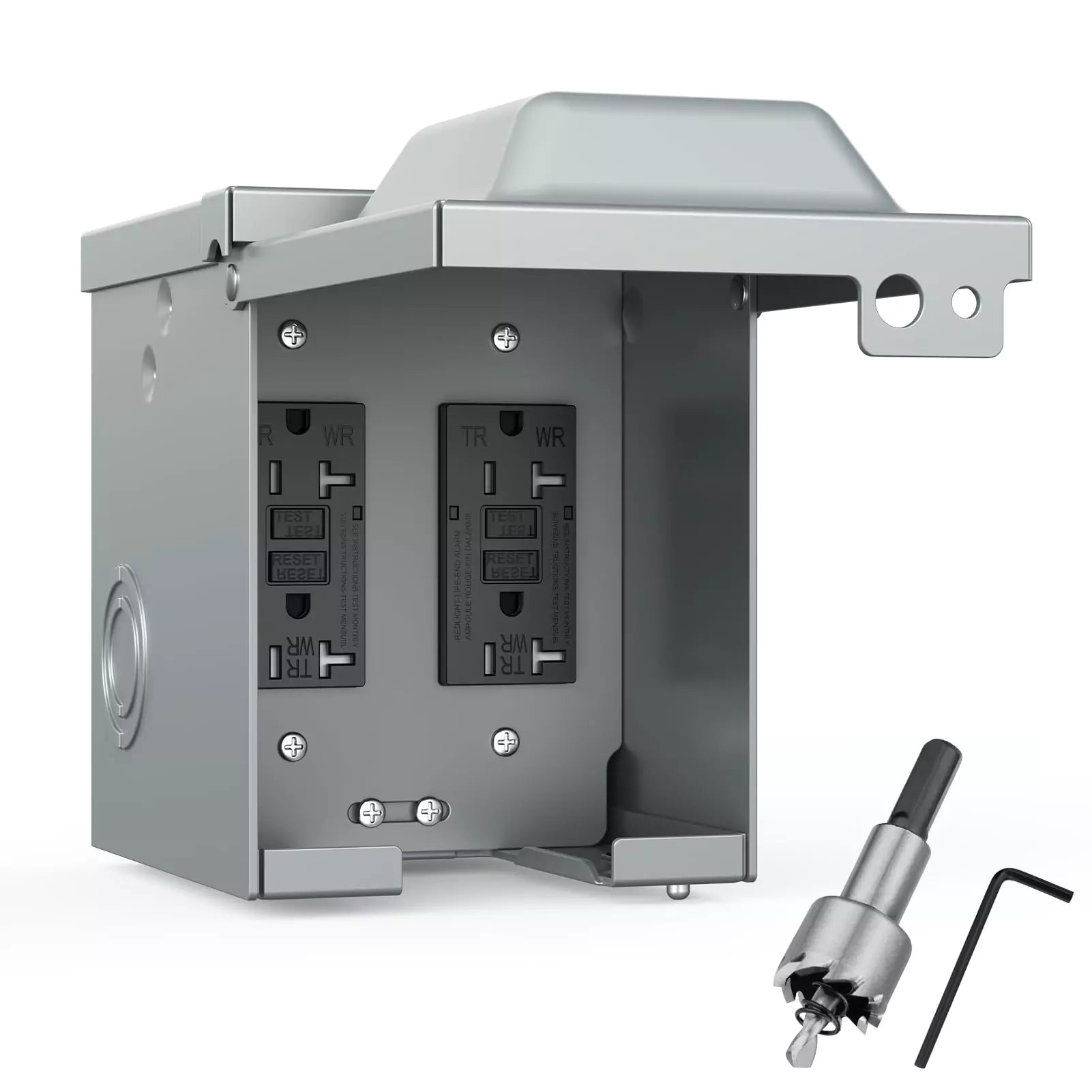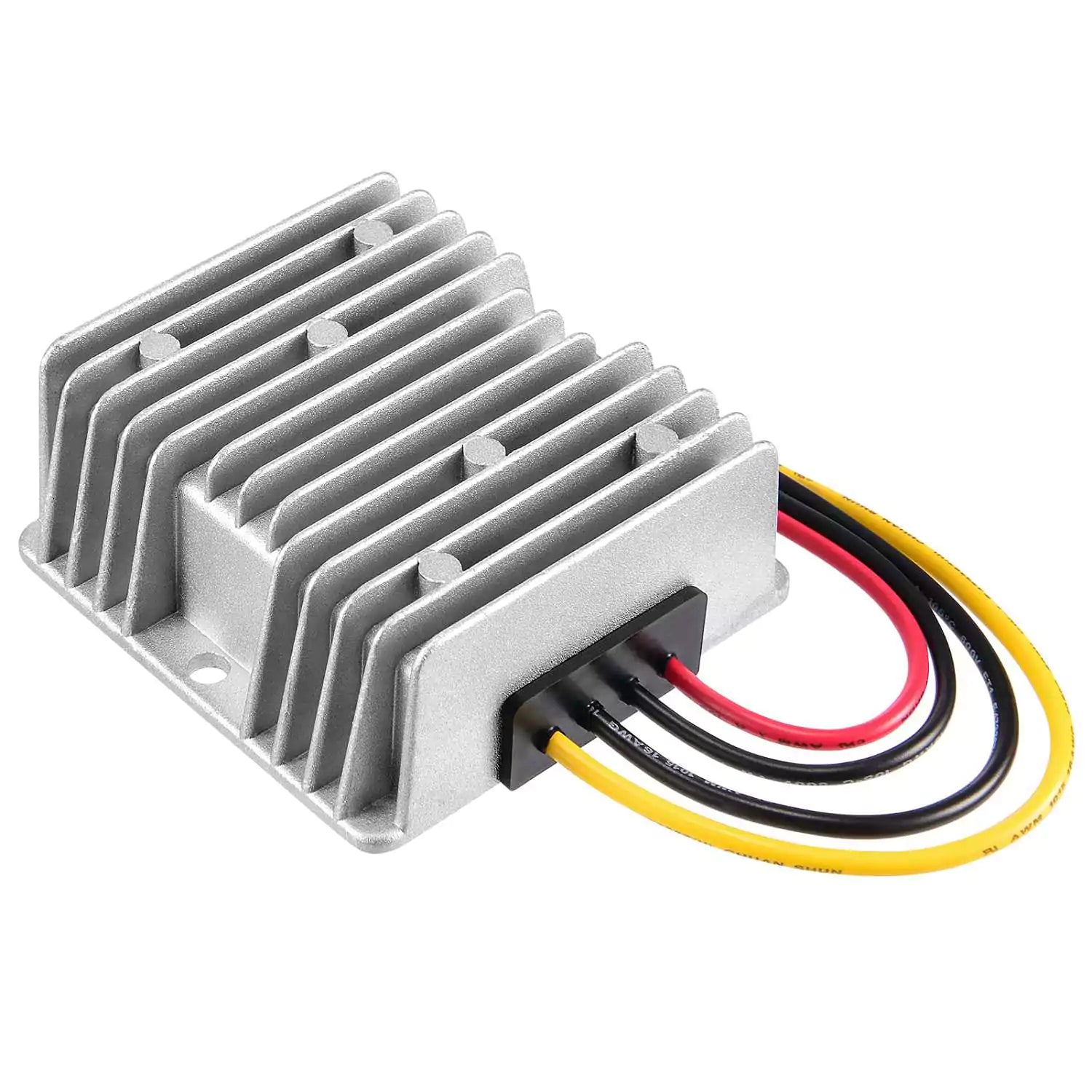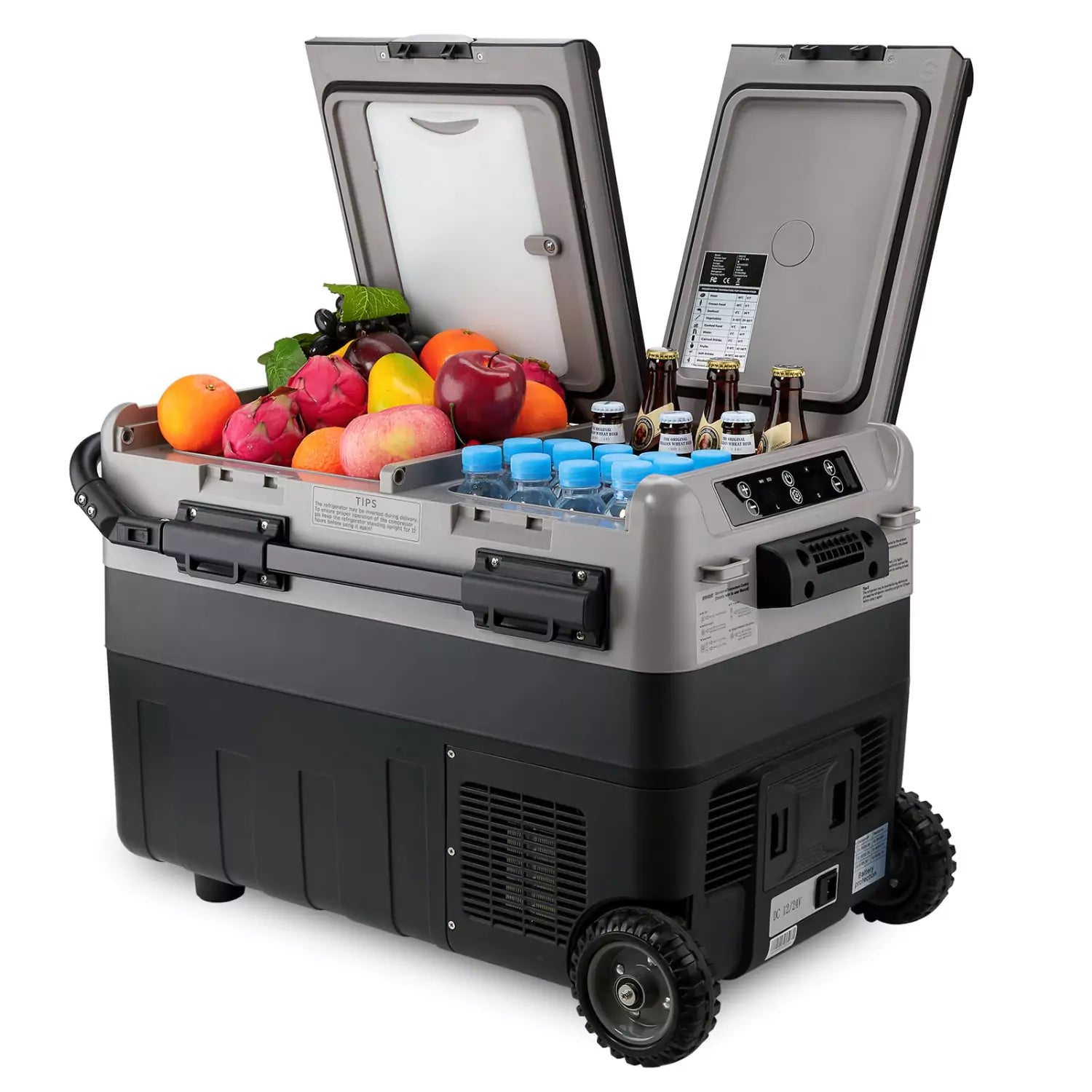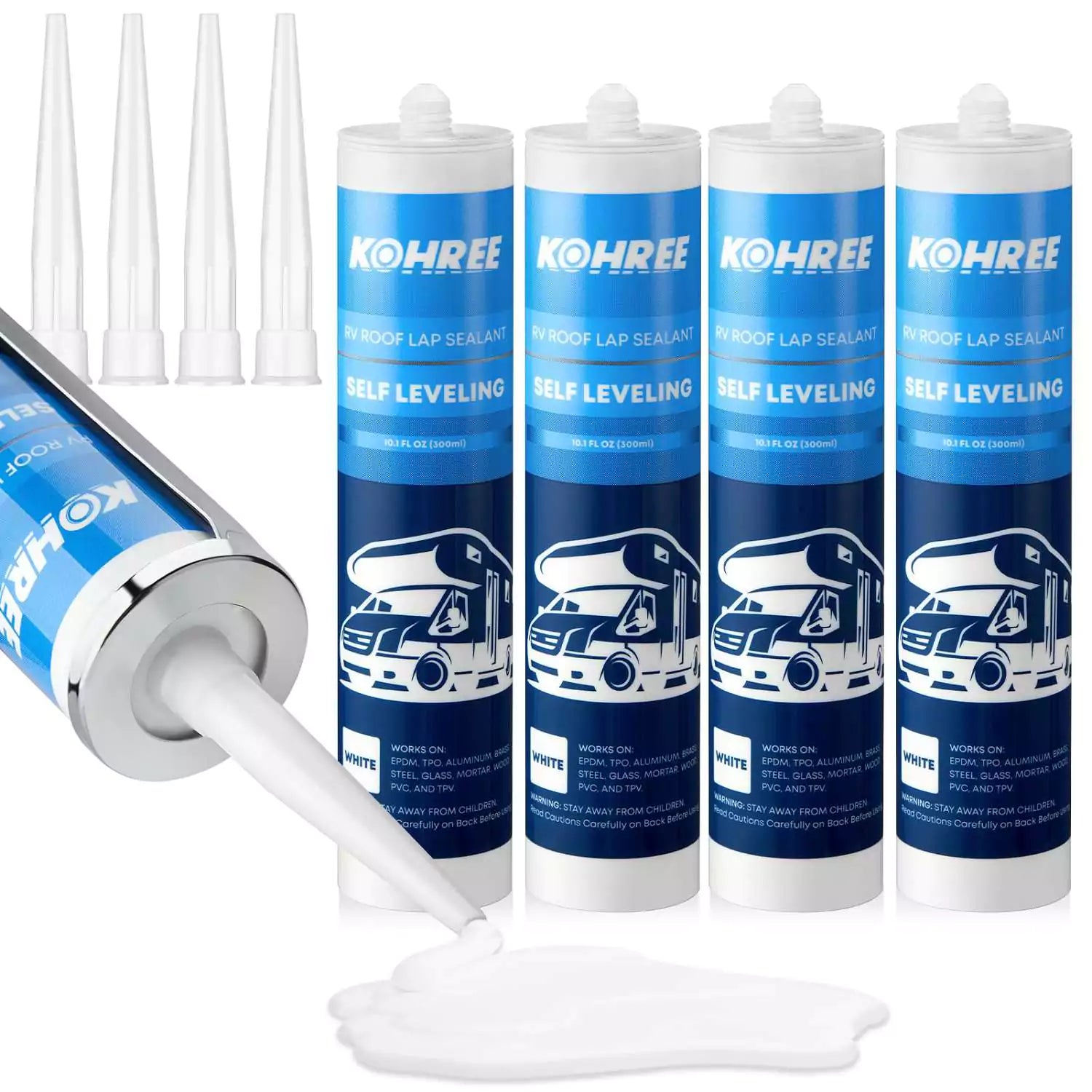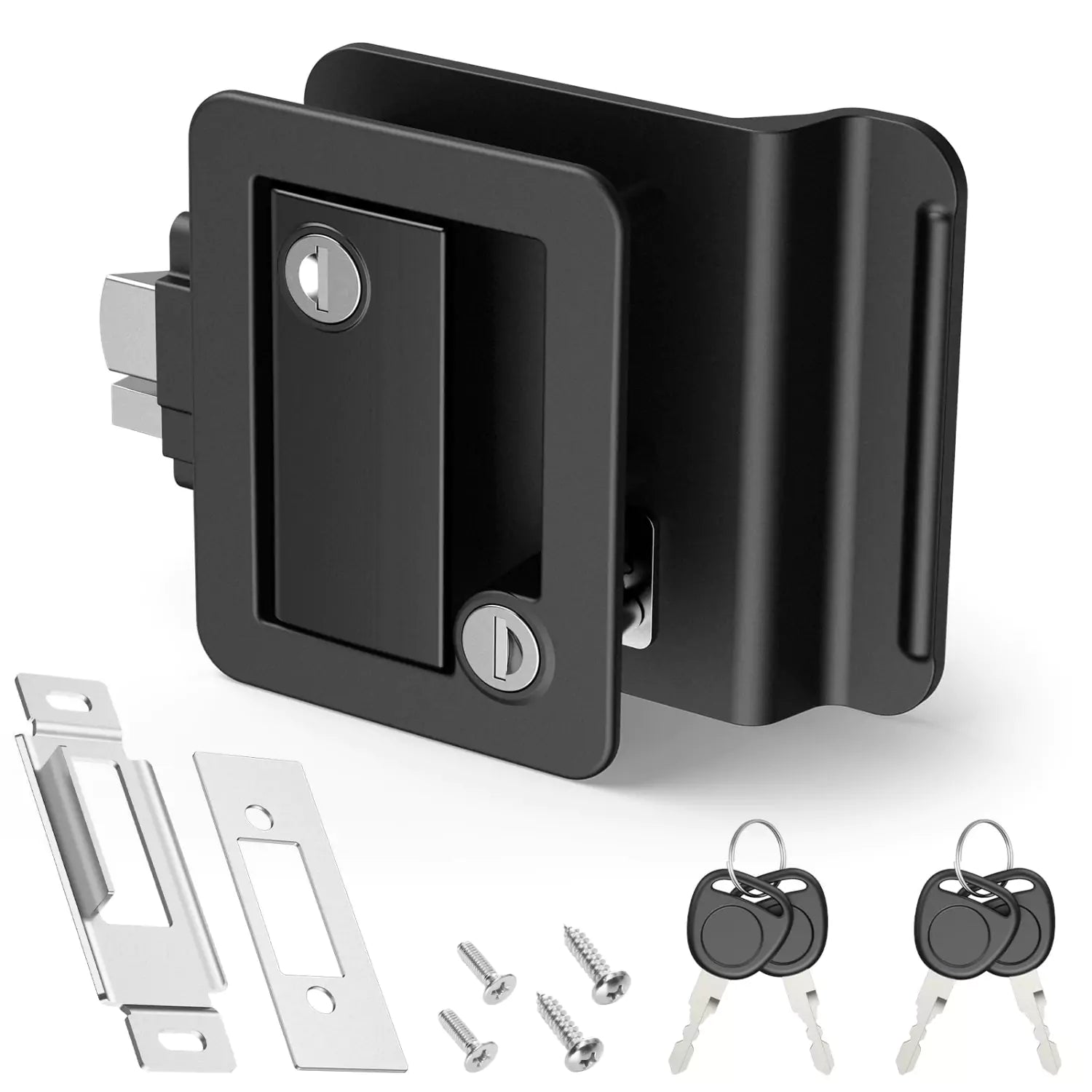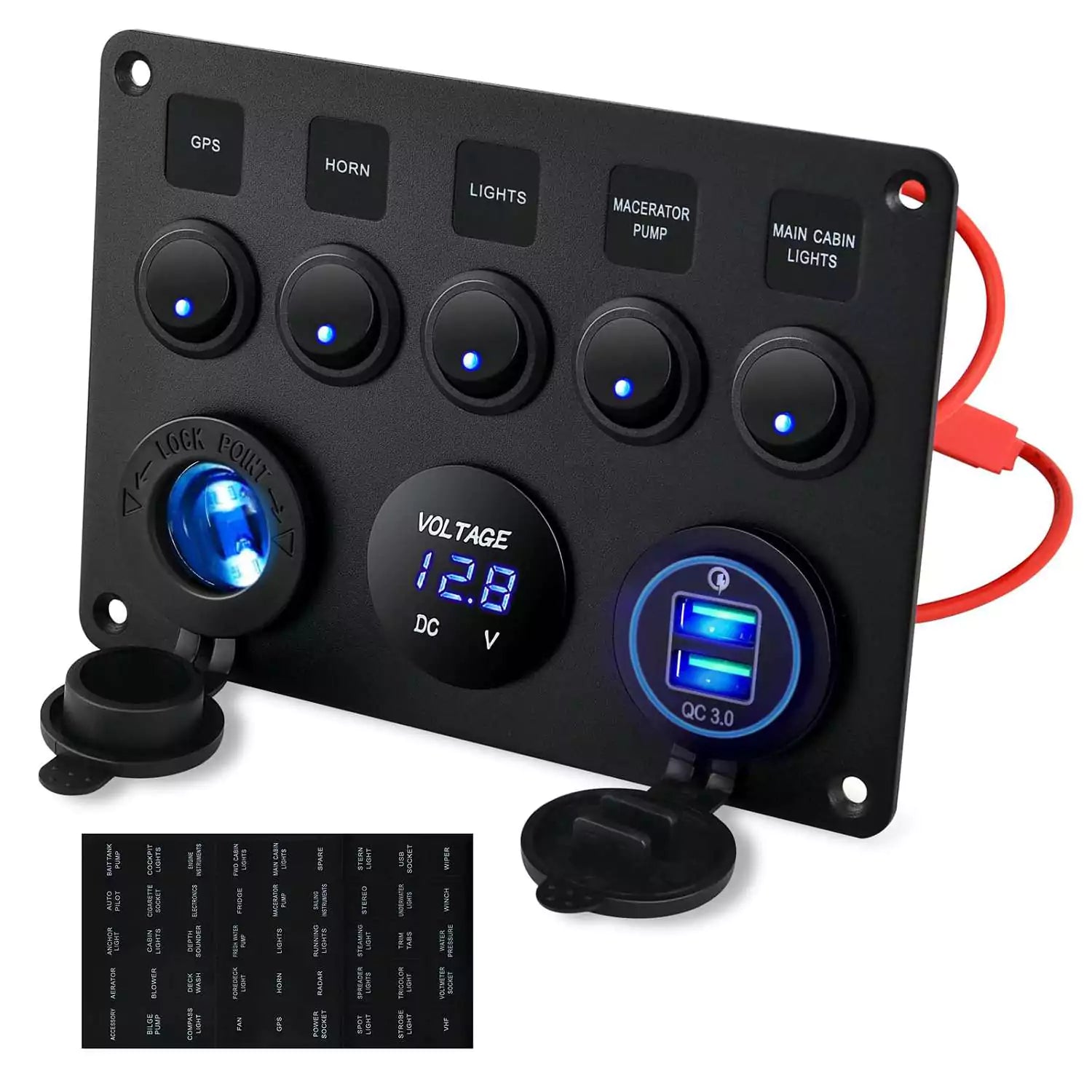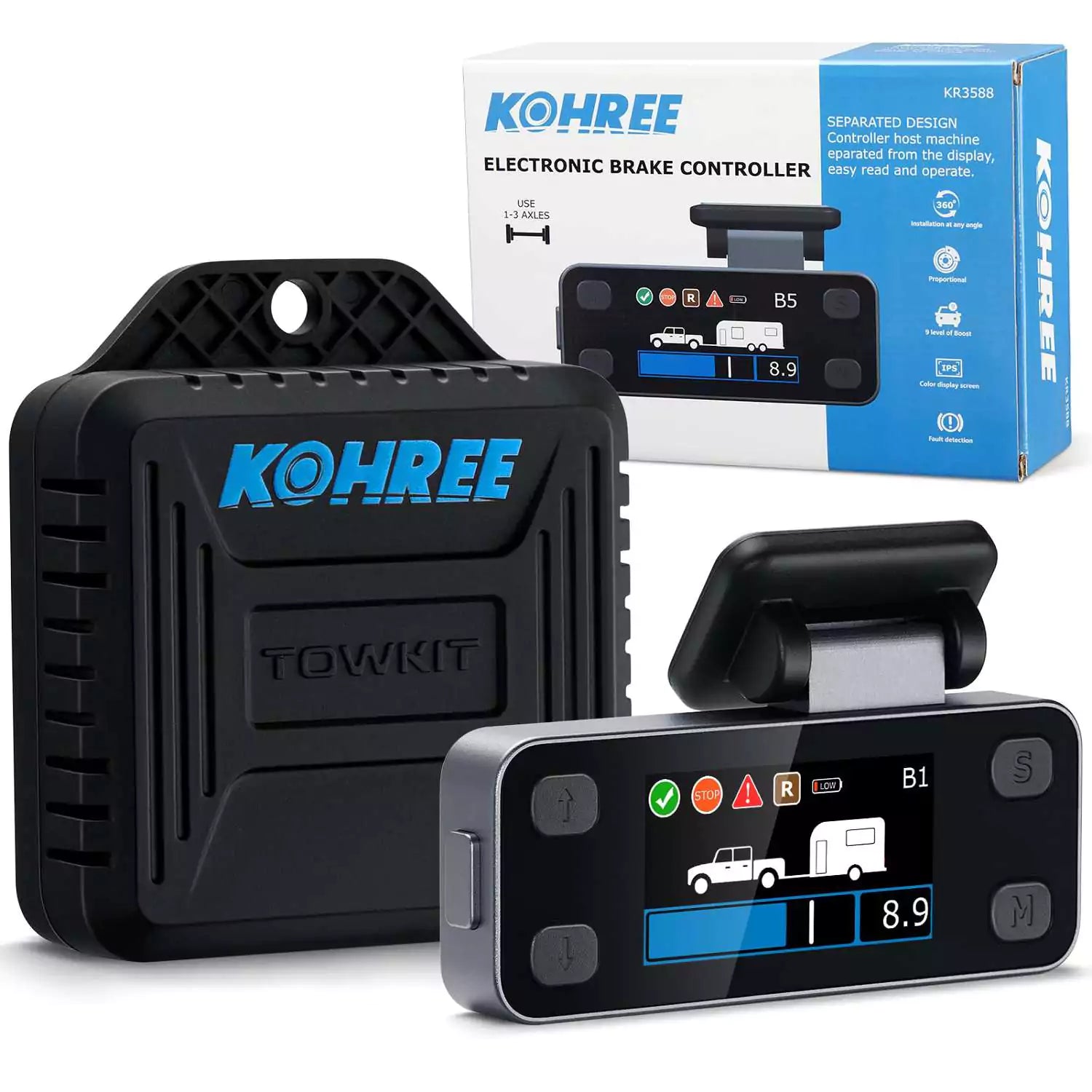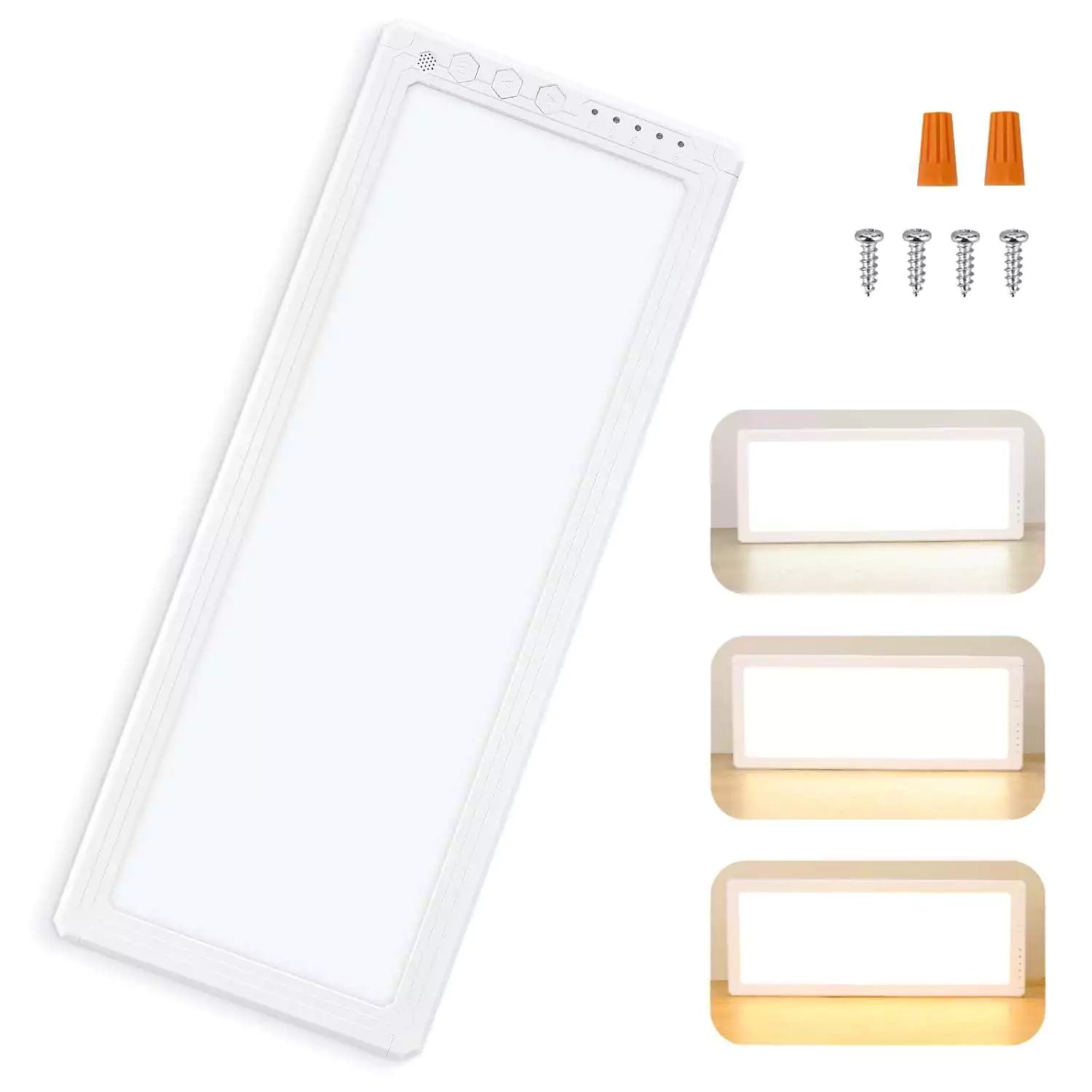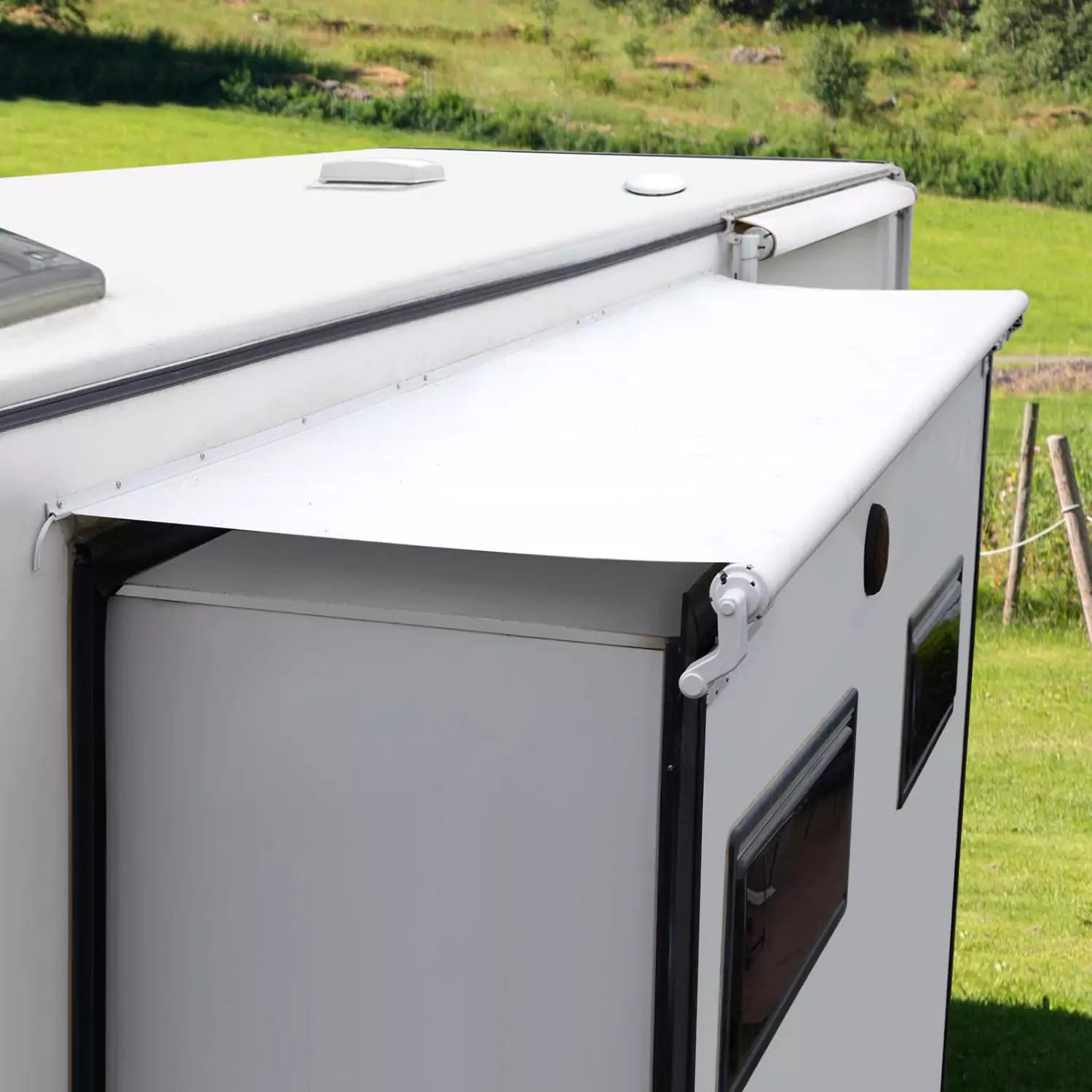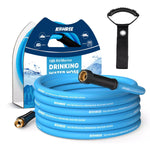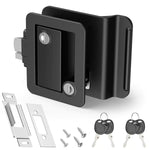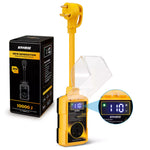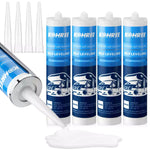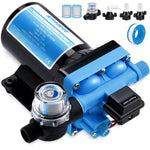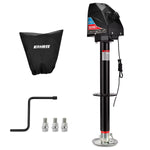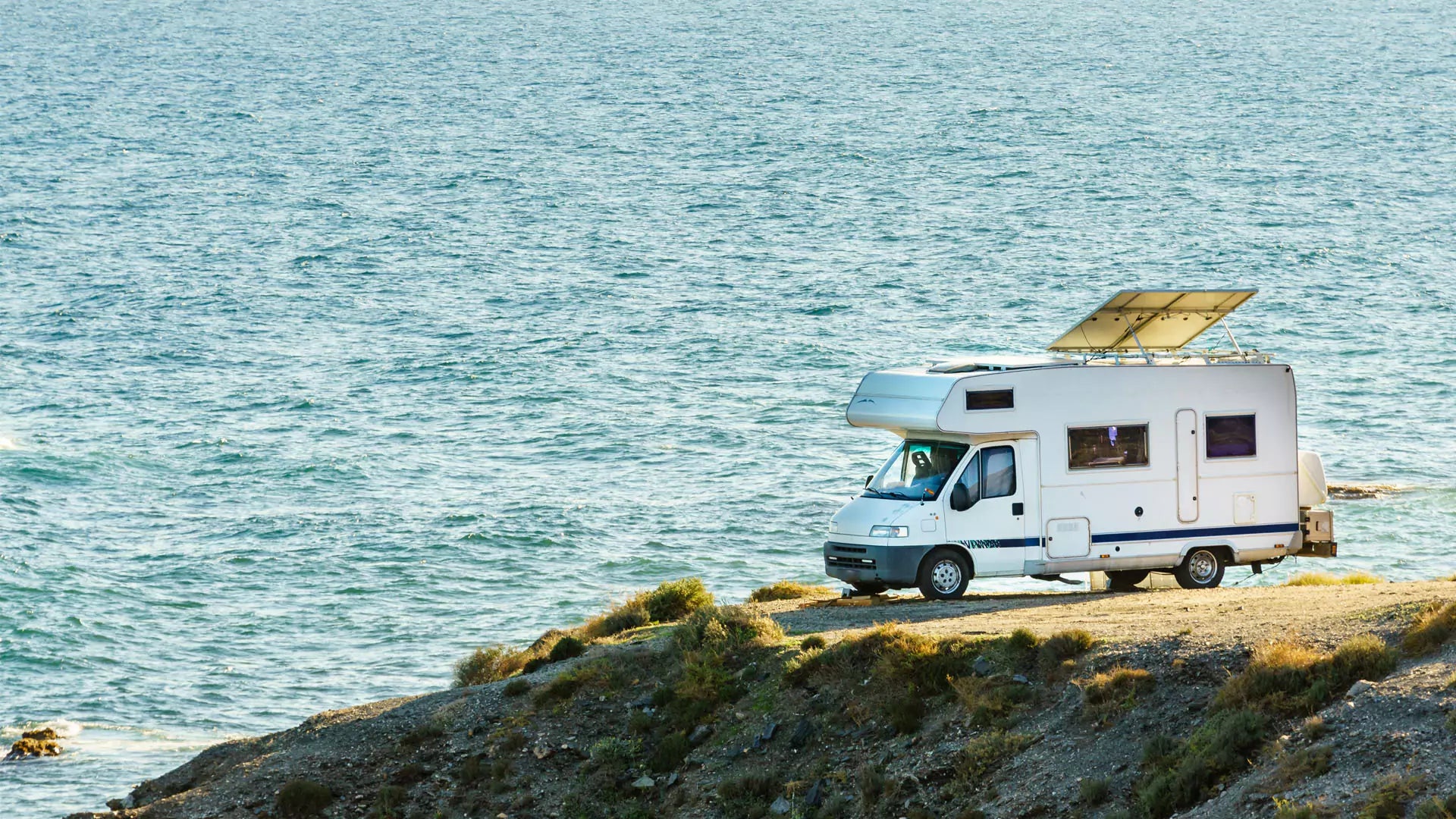We use an RV water pump to access clean water in the RV water system. But how do we deal with wastewater? A common method is to discharge directly through the sewer pipe, which is a hassle. Another method you may have heard of is using an RV macerator pump to improve wastewater handling efficiency.
This comprehensive guide will delve into the RV macerator pumps, exploring their types, advantages, disadvantages, installation methods, and best practices. By the end of this article, you will be equipped with the knowledge to make an informed decision about whether a macerator pump is the right investment for your RV.
What is an RV Macerator Pump?
An RV macerator pump is a device designed to grind up solid waste from the RV's holding tank into a slurry, allowing for easier and more sanitary disposal through a hose. It functions similarly to a household garbage disposal system, using sharp blades to chop waste into fine particles. It takes all the stuff you don't want to deal with that's designed to handle not just water, but also solid waste — like paper, food scraps, and other solids then grinds it up into tiny pieces. This liquefied waste can then be pumped over longer distances and uphill, which traditional gravity-fed systems cannot handle.
Once the waste is broken down, the macerator pump pushes it through your RV's plumbing and out into the septic system or a dump station. This is super handy because it means you can empty your RV's holding tanks without having to deal with big chunks of waste.
Here's why it's so cool:
Efficiency: It saves you time and effort because you don't have to separate solids from the water.
Odors: By grinding up the waste, it helps control odors that can come from a full holding tank.
Versatility: Some macerators can handle a variety of waste types, making them versatile for different uses in your RV.
How Does RV Macerator Pump Work?
-
Waste Intake: The pump draws in waste from the RV's holding tanks through a large-diameter inlet.
-
Grinding Process: Inside the pump, sharp blades or impellers rotate at high speeds, breaking down solid waste into smaller particles.
-
Liquefaction: As the waste is ground, it's mixed with water, creating a slurry-like consistency.
-
Pumping Action: The liquefied waste is then pushed through a smaller diameter hose using centrifugal force.
-
Discharge: The processed waste is expelled into an appropriate disposal point, such as a dump station or residential sewer connection.
This process allows for more efficient and hygienic waste disposal.
Types of RV Macerating System
-
Portable Macerator Pumps: These are standalone units that can be connected to the RV's waste outlet when needed. They are versatile and can be used with multiple RVs, but require manual setup and storage.

-
Permanent Macerator Pumps: These are built-in models that are installed permanently in the RV and are part of the RV toilet (and empty into the black water tank). They offer the convenience of always being ready for use and often come with built-in controls. However, they require professional installation and are not easily transferable between RVs.

Each type has its advantages, and the best choice for you will depend on your specific needs, budget, and how you use your RV. Some RVers even opt for a combination of systems, like a permanent pump for their black tank and a portable one for emergencies. So, do you need an RV macerator pump? Let's go ahead and see their pros and cons!
What Are the Pros and Cons of Using an RV Macerator Pump?
Advantages of Using an RV Macerator Pump
If you're still on the fence about whether an RV macerator pump is right for you, let's dive deeper into the advantages. These benefits might just convince you that this little device is an important component of RV accessories.
-
Neater and Cleaner Operation
A major benefit of using an RV macerator pump is a cleaner and more hygienic waste disposal process. Traditional RV waste systems often rely on bulky, cumbersome hoses. If the discharge angle isn't just right, these hoses can be difficult to manage and prone to spills or leaks.
In contrast, macerator pumps utilize much smaller hoses, typically around 1 inch in diameter. These are easier to handle and significantly reduce the chance of making a mess during the dumping process.
-
Reduced Odor
Nobody likes bad smells, especially when you're trying to enjoy the great outdoors. The grinding action of macerator pumps has a significant impact on odor reduction. By breaking down solid waste into smaller particles, the surface area exposed to bacteria is increased, which can accelerate the decomposition process. This, in turn, can help minimize the production of noxious gases that contribute to unpleasant odors.
Moreover, the sealed nature of macerator pump systems provides fewer opportunities for odors to escape during the waste disposal process. This is particularly beneficial when camping in close quarters or when discretion is desired.
-
Less Hose Cleaning Required
With a traditional waste system, cleaning hoses can be a challenging and unpleasant task. Solid waste and toilet paper can get stuck in hoses, requiring thorough and frequent cleaning.
The smaller diameter hoses used with macerator pumps are not only easier to handle but also require less intensive cleaning. The liquefied waste flows more easily through these hoses, leaving less residue behind.
Additionally, the high-pressure flow created by the pump helps to scour the interior of the hose as waste passes through. This reduced cleaning requirement saves time and water, It also makes the overall maintenance of the waste system less labor-intensive and more pleasant for RV owners.
-
Good for Dumping at Longer Distances
If you are using traditional water pipes to discharge wastewater, they might be limited by the laws of physics – they rely on gravity to move waste downhill. This can be problematic when the only available dump site is located some distance away or uphill from the RV.
Macerator pumps overcome this limitation by providing the necessary pressure to move waste over longer distances and against gravity. Most RV macerator pumps can effectively move waste up to 150 feet horizontally and 10-15 feet vertically. That means you are no longer have to wait for the position for near the dump station.
-
Helps Prevent Clogs
Clogs can be a nightmare for any RVer. They often require manual intervention to resolve, which can be messy and time-consuming.
Macerator pumps significantly reduce the risk of clogs by grinding solid waste into a fine slurry before it enters the discharge hose. This process breaks down potential clog-causing materials such as toilet paper and solid waste, allowing them to flow more freely through the system.
The result is a smoother, more reliable waste disposal process with fewer interruptions or emergencies due to blockages.
-
Real RVers Adventure Experience
When we communicate with RV enthusiasts, we find that they are basically equipped with a portable RV macerator pump in case of emergency.
For example, Sarah and Tom were excited to camp at a beautiful mountainside site, but quickly realized the dump station was uphill from their parking spot. Their sewer pipes can't drain solid waste and need to move back and forth to adjust. Fortunately, their newly installed portable macerator pump could conveniently grind up the waste and discharge it through the sewer pipes at the designated wastewater discharge point without being hindered by the elevation.
After a long trip, they didn't want to wait in line at the crowded dump station. With his macerator pump, he was able to empty his tanks directly into his home's sewer cleanout. Quick, easy, and no extra fees!
Disadvantage of Using an RV Macerator Pump?
Although an RV macerator pump has many advantages, like any piece of equipment, it comes with its own set of drawbacks and considerations. Let's take an honest look at some of the potential downsides:
-
Expensive
One of the primary considerations when contemplating an RV macerator pump is the initial cost. These systems are generally more expensive than traditional gravity-fed waste management solutions. The price can range from around $60 for basic portable models to over $300 for high-end, permanently installed systems.
Additionally, there may be installation costs if you opt for a permanent system and choose professional installation. It's crucial to factor in these expenses when determining if a macerator pump is the right choice for your RV setup.
-
Increased Dumping Time
While a macerator pump can make the dumping process cleaner and more flexible, it's not necessarily faster. It often takes longer to empty your tanks with a macerator pump than with a traditional gravity-fed system. The pump needs time to grind the waste and push it through the smaller hose. If you're in a hurry or at a busy dump station, this extra time could be a drawback.
-
Potential for Mechanical Failure
As with any mechanical device, there's always a risk of failure. The grinding mechanisms, motors, and other components can fail over time, especially if the pump is used frequently or improperly maintained. A malfunctioning macerator pump can lead to significant inconvenience, potentially leaving you unable to empty your waste tanks until repairs can be made. It's wise to have a backup plan, such as a traditional gravity dump hose, in case of pump failure.
-
Noise Level
Macerator pumps aren't exactly quiet. The grinding and pumping action can create a fair bit of noise, which might be an issue if you're trying to be discreet or if you're camping in a quiet area. It's not ear-splitting, but it's noticeable. Before buying a new RV macerator pump, you need to consider the noise level.
-
Limitations on Leaving it Connected or Running Dry
Most macerator pumps are not designed for continuous connection to waste tanks or for running dry. Leaving the pump connected to a full or partially full tank for extended periods can lead to premature wear or damage to the pump's seals and mechanisms.
Similarly, running the pump dry (without waste or water flowing through it) can cause overheating and damage to the motor or grinding components. It's better to disconnect it when not in use.
Why You Need an RV Macerator Pump?
Now, you might be thinking, "Do I really need another gadget for my RV?" Well, let me tell you, an RV macerator pump isn't just an add-on - for many RVers, it's become an essential piece of equipment. To determine if a macerator pump is worth the investment for your RV, consider the following:
1. Frequency of Use: If you frequently camp in areas without traditional dump stations, a macerator pump could be invaluable.
2. Type of Camping: For those who enjoy boondocking or remote camping, the flexibility offered by a macerator pump can greatly enhance the experience.
3. RV Storage: If you often store your RV at home and want to connect to your residential sewer, a macerator pump can be extremely convenient.
4. Physical Limitations: For RV owners who find it challenging to maneuver heavy, traditional sewer hoses, the smaller, lighter hoses used with macerator pumps can be a significant benefit.
5. Long-Term Plans: If you plan to RV for many years to come, the initial investment in a quality macerator pump can pay off over time in terms of convenience and flexibility.
6. Campground Preferences: If you often stay at campgrounds with limited or inconveniently placed dump stations, a macerator pump can expand your options.
7. Resale Value: A well-maintained macerator pump system can be a selling point if you decide to upgrade or sell your RV in the future.
How to Install RV Macerator Pump Perfectly?
For most RV enthusiasts, I would recommend that you consider purchasing a portable RV macerator pump. Installing a portable RV macerator pump can be a straightforward process with the right tools and steps. However, if you need to install a permanent RV macerator pump, it is advisable to seek the help of professional RV technicians and manufacturers. Below is an example of an installation guide using Kohree's 12V portable RV macerator pump:

- Install a clear hose and secure it with clamps.
- Install a rinse water hose to the on-off valve.
- Install pump onto waste port, ensure o-rings are present, and twist to lock.
- Use the provided power cables to connect to 12V power.
- Open the black water valve, and turn on the pump.
- Close the RV drain valve, turn on the water, and rinse the pump.
- Decide where to install the pump. It should be close to your RV's waste outlet. Many RVers install it in an exterior compartment or under the RV.
- Use the mounting brackets to secure these to your chosen location, then attach the pump.
How to Choose the Best Macerator Pump for an RV?
Selecting the right macerator pump for your RV isn't just about picking the first one you see or the cheapest option available. It's about finding the perfect match for your specific needs and RV setup. Let's dive into the factors you should consider and how to make an informed decision.
How Much Does an RV Macerator Pump Typically Cost?
The cost of RV macerator pumps can vary widely based on the brand, features, and whether it's a portable or permanent model. On average, prices range from $60 to $300. Higher-end models with additional features such as remote control operation or higher pumping capacities will be on the more expensive side. These prices typically don't include installation costs for permanent systems, which can add another $100 - $300 depending on complexity and labor rates.
- Budget Options: $60-$80
- Mid-Range Pumps: $100-$150
- High-End Models: $200+
Remember, the most expensive option isn't always the best for your needs, and the cheapest might end up costing you more in the long run if it's not up to the task. The price variation reflects differences in build quality, flow rate, durability, and additional features like self-priming capabilities or thermal protection. When choosing a macerator pump, consider your specific RV needs and usage frequency to determine the best value for your situation.
Factors to Consider When Selecting the RV Macerator Pump
1. Portability vs. Permanent Installation: Decide whether you want a system you can take with you and store when not in use, or a permanently installed solution.
2. Flow Rate: Look for pumps with a flow rate of at least 12-13 GPM (gallons per minute) for efficient waste removal.
3. Vertical Lift Capacity: Consider how high the pump needs to move waste. Most pumps can handle 10-15 feet.
4. Hose Length: Determine the maximum distance you'll need to pump waste. Many pumps can handle up to 150 feet horizontally.
5. Power Source: Most pumps run on 12V DC power (Suitable for operation on most RV electrical systems)
6. Durability: Look for pumps with robust construction, especially if you plan to use them frequently. Some pumps have stainless steel construction and others have pure copper construction. Generally speaking, motors with pure copper structures are more powerful and more stable.
7. Noise Level: If noise is a concern, look for models as quieter or with noise-reduction features.
8. Ease of Maintenance: Consider options with more cleaning and maintenance accessories, which can make maintenance easier and save money.
9. Compatibility: Consider if the RV Macerator Pump is compatible with most 3" RV waste outlets.
When it comes to RV macerator pumps, Kohree stands out as a top contender. Our RV macerator pump utilizes a pure copper motor, delivering powerful performance at an affordable price. This allows RV enthusiasts to experience a more efficient wastewater disposal process at a reasonable cost, while also enhancing our product's competitiveness. In addition to its powerful motor, our macerator pump boasts several other notable features:
- Effortless Setup & Rapid Drainage
Our self-priming RV Macerator Pump operates on a user-friendly 12V DC voltage, capable of swiftly emptying a substantial 150L sewage tank in just 4 minutes.
Equipped with double 4-spiral blades crafted from durable SK5 steel, this pump minces waste down to a mere 1/16", effectively preventing clogs and ensuring smooth operation. Its high-performance motor not only delivers impressive results but also runs quietly, with built-in safeguards against overheating and dry running, making each disposal session effortless and undisturbed.

- All-In-One Solution, Ready to Go
Our RV Macerator Pump Kit arrives complete, eliminating the need for additional purchases. Inside the sturdy storage box, you'll find the macerator pump itself, along with power cables, 3/4'' NPT fittings, adjustable metal clamps, a dedicated water hose, a manual crushing screwdriver, and a pair of rubber gloves for mess-free handling – everything you need, right at your fingertips.
We've prioritized cleanliness with a design that facilitates simple cleaning. After use, attach the included water pipe for a quick fresh water rinse, and take advantage of the manual crushing feature to ensure the pump is thoroughly cleared. The bonus rubber gloves ensure your hands stay clean throughout the process.

- Universal Compatibility for Versatile Use
Whether you're an avid RVer or a boater, our macerator pump is engineered to adapt to various systems. It effortlessly connects to standard 3" RV sewer outlets and is versatile enough for boat winterization, sewage transport, and even marine toilet systems. Its compatibility ensures seamless integration into your existing plumbing, enhancing your adventures wherever they may take you.

Conclusion
The decision to invest in an RV macerator pump is a personal one that depends on your specific needs, camping style, and budget. For many RVers, the added convenience and flexibility these pumps provide make them well worth the investment. They can turn the often unpleasant task of emptying waste tanks into a more manageable, less messy process.
Whether you decide to add a macerator pump to your RV setup or stick with traditional dumping methods, the most important thing is to handle waste responsibly. After all, proper waste management is a crucial part of being a good steward of the environment and a respectful member of the RV community.
